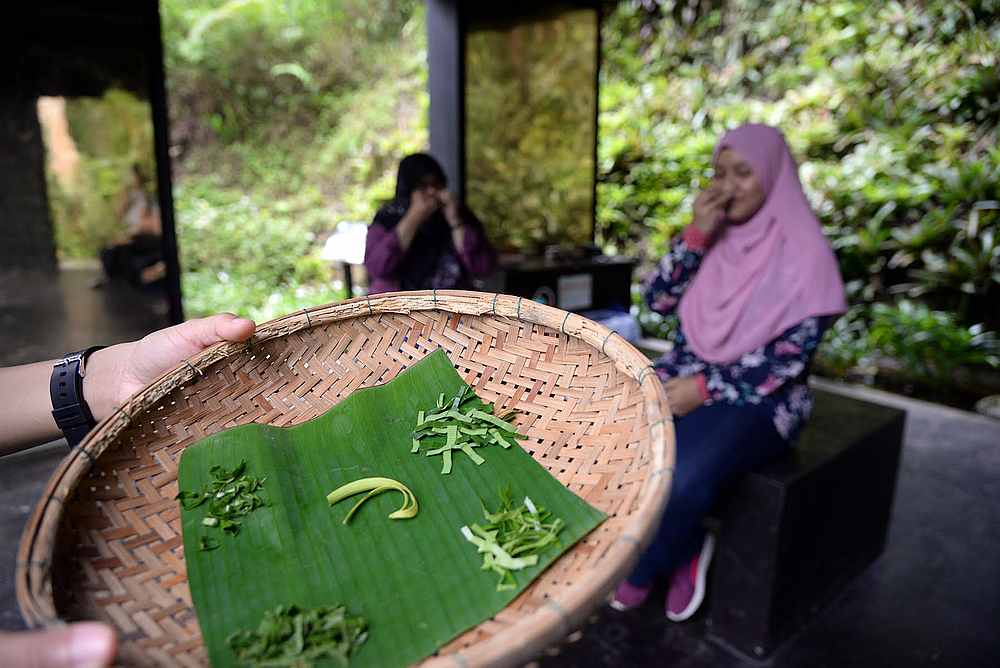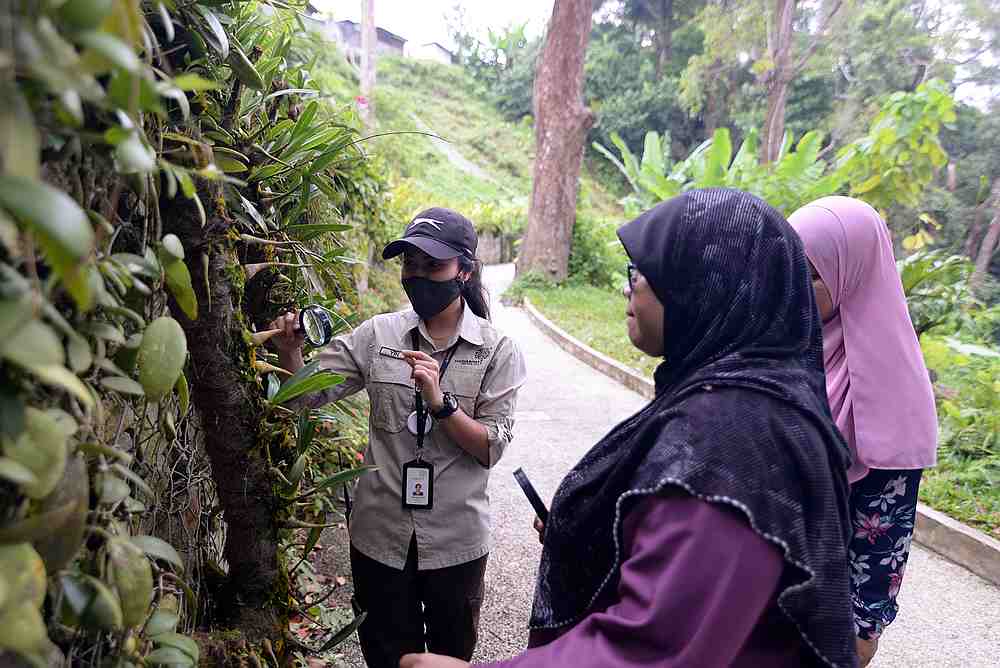GEORGE TOWN, Oct 11 — In recent years, the Japanese practice of shinrin-yoku or the act of immersing fully in Nature using all five senses has been gaining traction.
Translated, shinrin-yoku is forest bathing; shinrin means forest and yoku means bath. It is not an actual bath but more of using our senses to absorb the calming energy of Nature.
Back in June, The Habitat Penang Hill introduced a Forest Bathing Experience package as an eco-therapy session for visitors to reconnect with Nature.
The Habitat’s managing director Allen Tan said this was introduced at a time when people were/are stressed out by the Covid-19 pandemic.
“We introduced this in June to help people reconnect with Nature and we have received positive feedback from visitors who felt rejuvenated after the experience,” he said.
The experience starts with a briefing by one of The Habitat's Nature guides on the practice of shinrin-yoku and how it was started in Japan as Nature therapy.
Nature guide Ng Chai Yin said that it is not just a walk in the forest but absorbing Nature through your ears, eyes, nose, mouth, hands and feet.
Visitors start with some light stretching after the briefing before they are handed a magnifying glass each.
Ng then points out the various plants, flowers and insects along the path, taking time to pause and let visitors truly drink in the sights, sounds, smells and feel of Nature.

She points out the sounds of birds and insects while reminding visitors to slow down and breathe in the forest fragrance.
“The forest produces a natural aromatherapy of phytoncides which is proven to reduce our stress levels and boost our immune system,” she said.
Touching the plants is usually prohibited in most parks but here, visitors are encouraged to touch and feel the leaves, moss and petals of flowers growing along the path while using the magnifying glass to observe every minute detail of the flora.
Sometimes, Ng would stop and point out an insect, make a note of the unique patterns on the leaves of a plant and let visitors test an exploding seed pod of a flowering plant.
At one point, she picked up a strange-looking insect, a trilobite beetle (with the scientific name platerodrilus), that looked like its namesake, the extinct trilobites.
The slow explorative walk is divided into five different sections starting with a general appreciation of Nature before Ng goes into the practice of amplifying each sense to experience the forest.
It starts with the sense of sight before she moves to a section where visitors get to lie down on mats to truly relax into the environment.
In this segment, she coaches visitors through two rounds of Dutch extreme athlete Wim Hof’s method of breathing. At the same time, visitors are encouraged to look up at the skies, at the trees above and sunlight filtering through the branches.
This session leads to the sense of sound segment where visitors are led to a site overlooking the hills, to look far and listen to the sounds of the forest.

This is followed by an aromatherapy session where you get to sniff different types of leaves, differentiate the scents and identify them, some of which are common local herbs such as pandan and turmeric leaves.
As the visitors progress on to each section, Ng reminds them to slow down, to take deep breaths and to absorb the serenity, sounds and flavours of the forest using all of their senses.
The session ends with a tasting section where visitors are treated to different fruits and vegetables accompanied by tea.
The entire experience takes between two to three hours depending on the size of the group.
The forest bathing experience packages are available only in the mornings on Fridays, Saturdays and Sundays. Each session can take a maximum of eight participants and those interested are required to pre-book.
For more details, call 019-6457741 or email i[email protected].






















